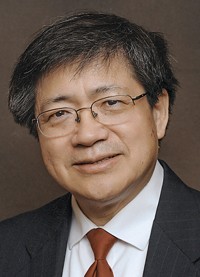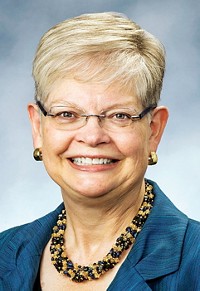Advertisement
Grab your lab coat. Let's get started
Welcome!
Welcome!
Create an account below to get 6 C&EN articles per month, receive newsletters and more - all free.
It seems this is your first time logging in online. Please enter the following information to continue.
As an ACS member you automatically get access to this site. All we need is few more details to create your reading experience.
Not you? Sign in with a different account.
Not you? Sign in with a different account.
ERROR 1
ERROR 1
ERROR 2
ERROR 2
ERROR 2
ERROR 2
ERROR 2
Password and Confirm password must match.
If you have an ACS member number, please enter it here so we can link this account to your membership. (optional)
ERROR 2
ACS values your privacy. By submitting your information, you are gaining access to C&EN and subscribing to our weekly newsletter. We use the information you provide to make your reading experience better, and we will never sell your data to third party members.
Policy
Francisco Is 2009 President-Elect
With elimination of Student Affiliate status, undergraduates will be full members
by Linda Raber and Alicia Chambers
November 17, 2008
| A version of this story appeared in
Volume 86, Issue 46
THE RESULTS of the 2009 ACS national elections bring in a new president-elect, Joseph S. Francisco, and four board members, and they clear the way for dramatic change in the society’s membership categories.
Francisco, William E. Moore Distinguished Professor of chemistry at Purdue University, will serve as ACS president in 2010 and as a member of the ACS Board of Directors from 2009 to 2011. He received 12,663 votes. Challenger Josef Michl, a professor of chemistry at the University of Colorado, Boulder, received 10,124 votes.
“This has been surprising, exciting, and electric,” Francisco tells C&EN of his election. Upon hearing the news, he says, his class of 400 students applauded when his “teaching assistants announced the results of the election.” He views the position as a “once in a lifetime opportunity” and is grateful to his many supporters in the chemistry community.
Looking ahead, Francisco sees sustainability of the chemical sciences as his primary focus. Additional goals he has for the society are to “attract a broader pool of students into the chemical sciences to keep the enterprise healthy, work to help members thrive in a global economy, and promote innovation and entrepreneurship in the chemical sciences.”
In the race for director-at-large for the 2009–11 term, the winners are William F. Carroll Jr. and Marinda Li Wu. Carroll is vice president of Occidental Chemical, in Dallas; he returns to the ACS Board after serving in the presidential succession (2004–06). Wu, founder and president of Science is Fun!, in Orinda, Calif., retained her seat. ACS councilors voted to fill these two positions.
Pat N. Confalone, vice president of global R&D at DuPont Agriculture & Nutrition, won the District III director position, and Bonnie A. Charpentier, vice president of regulatory affairs at Metabolex, held her seat on the board from District VI.
In addition, ACS members ratified the “Petition on Membership Categories & Requirements,” a comprehensive revision of the qualifications required for membership and for affiliate status in the society. ACS has eliminated the student affiliate category of membership and approved granting full society membership to undergraduate students in chemistry and related sciences. When the initiative becomes effective in 2009, students would have all of the rights of full membership, including voting in national elections, with the exception of holding national office. Student members will pay substantially discounted dues. About 10,000 undergraduates are currently eligible to become full ACS members.
New constitution and bylaw provisions ratified in the elections open full ACS membership to anyone with an associate’s or bachelor’s degree in chemistry or in a related field of natural sciences, engineering, technology, or science education. Precollege chemistry teachers will also be immediately eligible for full membership. Currently, a bachelor’s degree plus work experience or an ACS-approved bachelor’s degree in chemistry are required for membership.
Finally, councilors cleared the way for anyone interested in chemistry to apply for society affiliate status, enabling chemistry enthusiasts to join the society. The ACS members who petitioned the society for these extensive changes believe that the previous requirements were too restrictive.
Sixty-eight percent of the votes for ACS president-elect were cast through the Internet, up from 66% last year. The total number of votes cast for the position (15% of all eligible voters) is slightly higher than last year’s (14%).







Join the conversation
Contact the reporter
Submit a Letter to the Editor for publication
Engage with us on Twitter